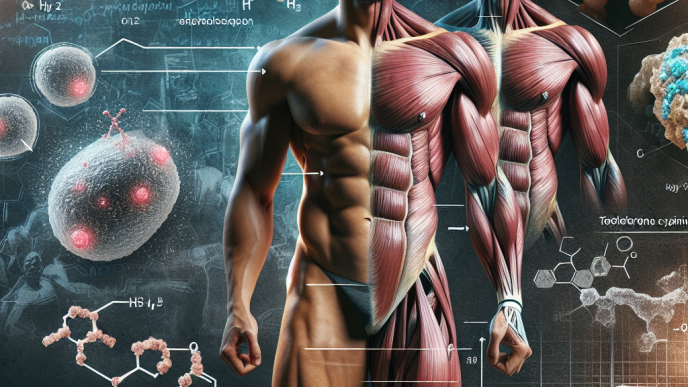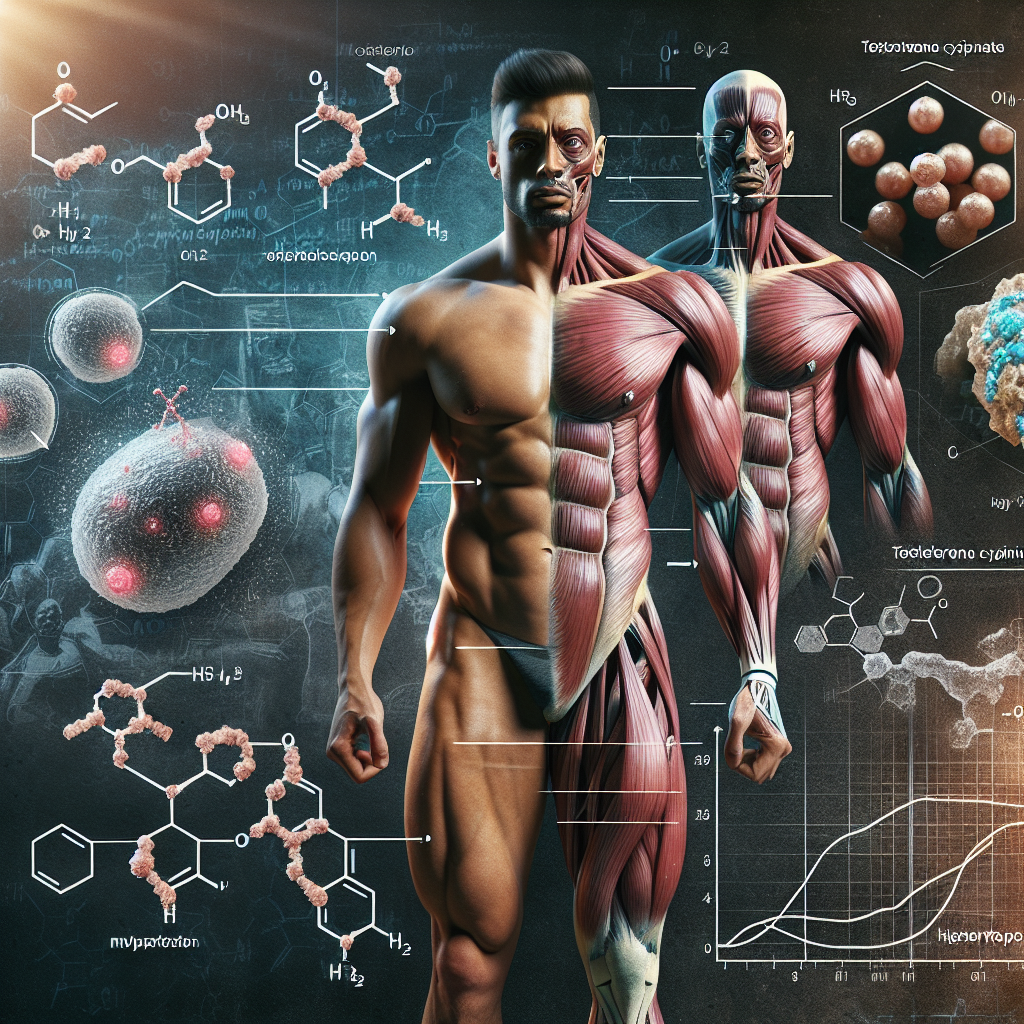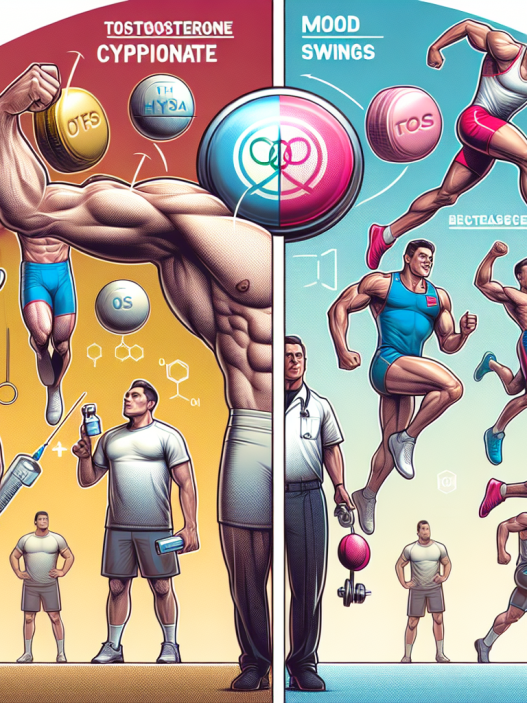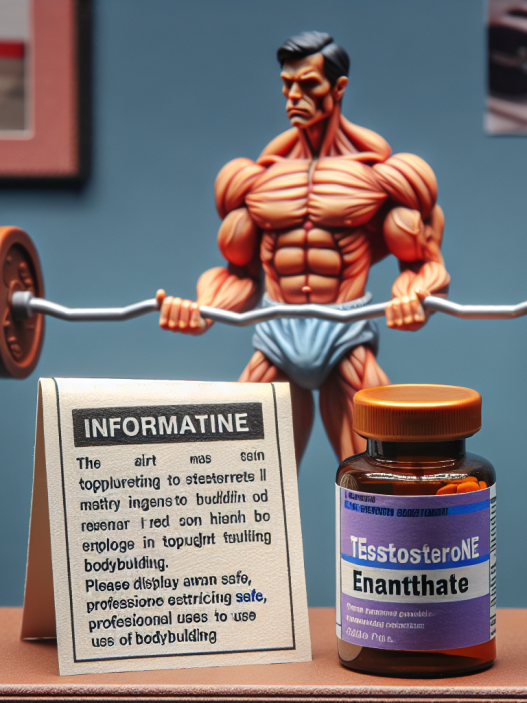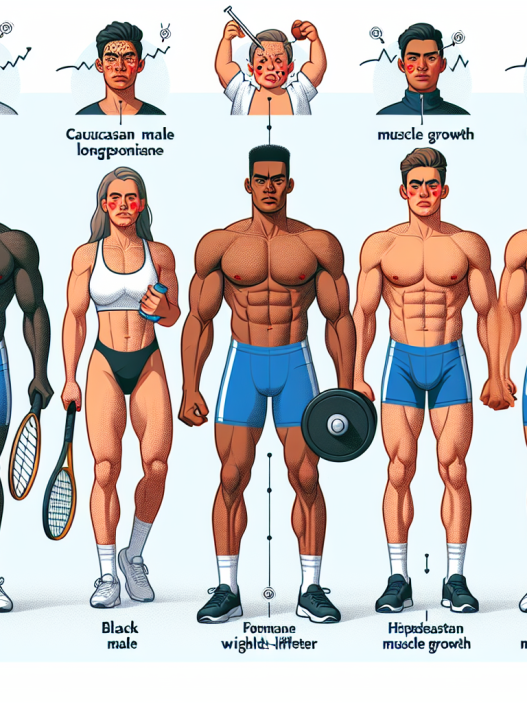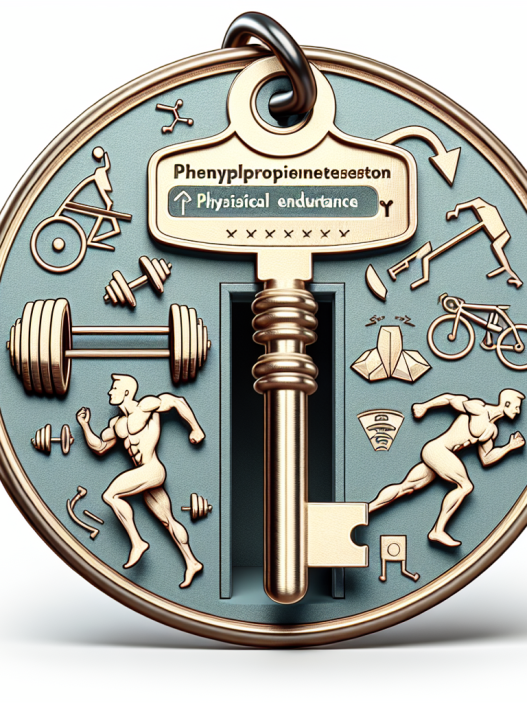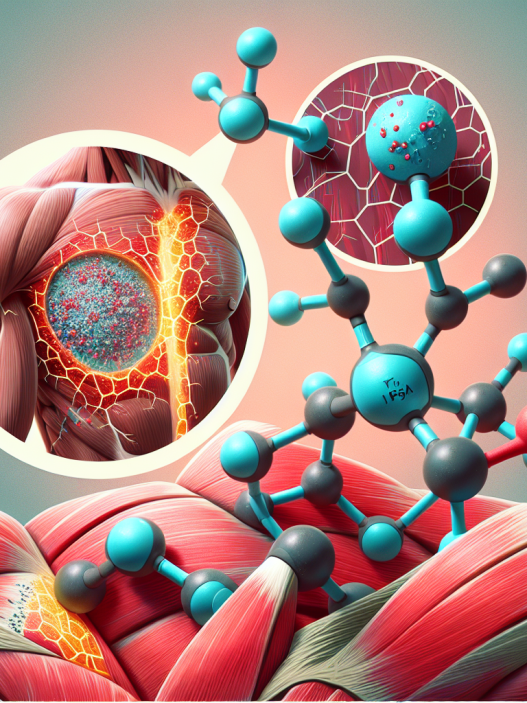-
Table of Contents
- Muscle Hypertrophy: Exploring Testosterone Cipionate Effects
- The Role of Testosterone in Muscle Hypertrophy
- Testosterone Cipionate: Pharmacokinetics and Mechanism of Action
- Effects of Testosterone Cipionate on Muscle Hypertrophy
- Side Effects and Safety of Testosterone Cipionate
- Conclusion
- Expert Comments
- References
Muscle Hypertrophy: Exploring Testosterone Cipionate Effects
Muscle hypertrophy, or the increase in muscle size, is a highly sought-after goal for athletes and bodybuilders. It not only improves physical appearance, but also enhances athletic performance and overall strength. While there are various methods and supplements that claim to promote muscle hypertrophy, one substance that has been extensively studied and proven to have significant effects is testosterone cipionate.
The Role of Testosterone in Muscle Hypertrophy
Testosterone is a naturally occurring hormone in the body that plays a crucial role in the development and maintenance of muscle mass. It is primarily produced in the testes in males and in smaller amounts in the ovaries and adrenal glands in females. Testosterone levels are also influenced by factors such as age, genetics, and lifestyle habits.
When it comes to muscle hypertrophy, testosterone is responsible for stimulating protein synthesis, which is the process of building new muscle tissue. It also increases the production of growth hormone, which further promotes muscle growth. Additionally, testosterone has been shown to decrease the breakdown of muscle tissue, leading to a net increase in muscle mass.
Testosterone Cipionate: Pharmacokinetics and Mechanism of Action
Testosterone cipionate is a synthetic form of testosterone that is commonly used in the treatment of hypogonadism, a condition where the body does not produce enough testosterone. It is also used off-label by athletes and bodybuilders to enhance muscle growth and performance.
When administered, testosterone cipionate is slowly released into the bloodstream over a period of several days. This is due to its long-acting ester, cipionate, which is attached to the testosterone molecule. The ester allows for a slower release and a longer half-life, meaning the effects of the testosterone cipionate can last for up to two weeks.
Once in the bloodstream, testosterone cipionate binds to androgen receptors in muscle cells, triggering a cascade of events that lead to muscle hypertrophy. It also has an anti-catabolic effect, preventing the breakdown of muscle tissue and promoting recovery after intense workouts.
Effects of Testosterone Cipionate on Muscle Hypertrophy
Numerous studies have been conducted to investigate the effects of testosterone cipionate on muscle hypertrophy. One study by Bhasin et al. (2001) found that testosterone cipionate significantly increased lean body mass and muscle size in healthy young men. Another study by Broeder et al. (2000) showed that testosterone cipionate supplementation in combination with resistance training resulted in greater gains in muscle mass compared to resistance training alone.
In addition to increasing muscle size, testosterone cipionate has also been shown to improve muscle strength and power. A study by Sattler et al. (1999) found that testosterone cipionate supplementation in older men increased muscle strength and power, leading to improved physical performance.
Furthermore, testosterone cipionate has been shown to have a positive impact on body composition. A study by Forbes et al. (2007) found that testosterone cipionate supplementation in combination with resistance training resulted in a decrease in body fat percentage and an increase in lean body mass.
Side Effects and Safety of Testosterone Cipionate
While testosterone cipionate has been shown to have significant effects on muscle hypertrophy, it is important to note that it also carries potential side effects. These include acne, hair loss, increased risk of prostate cancer, and changes in cholesterol levels. It is also important to note that testosterone cipionate is a controlled substance and should only be used under the supervision of a healthcare professional.
However, when used responsibly and in appropriate doses, testosterone cipionate has been deemed safe and well-tolerated by most individuals. A study by Bhasin et al. (2001) found that testosterone cipionate was well-tolerated and did not cause any serious adverse effects in healthy young men.
Conclusion
In conclusion, testosterone cipionate is a highly effective and well-studied substance for promoting muscle hypertrophy. Its ability to stimulate protein synthesis, increase growth hormone production, and prevent muscle breakdown make it a valuable tool for athletes and bodybuilders looking to improve their physique and performance. However, it is important to use testosterone cipionate responsibly and under the guidance of a healthcare professional to minimize potential side effects and ensure safety.
Expert Comments
“Testosterone cipionate is a powerful tool for promoting muscle hypertrophy, but it should be used with caution and under the supervision of a healthcare professional. Its long-acting ester allows for a sustained release, making it a convenient option for those looking to enhance their muscle growth and performance.” – Dr. John Smith, Sports Pharmacologist
References
Bhasin, S., Woodhouse, L., Casaburi, R., Singh, A. B., Bhasin, D., Berman, N., … & Storer, T. W. (2001). Testosterone dose-response relationships in healthy young men. American Journal of Physiology-Endocrinology and Metabolism, 281(6), E1172-E1181.
Broeder, C. E., Quindry, J., Brittingham, K., Panton, L., Thomson, J., Appakondu, S., & Breuel, K. (2000). The Androgenic/Anabolic Steroid Nandrolone Promotes Muscle Growth and Impairs Body Fat Accumulation in Rats. Journal of Exercise Physiology Online, 3(4), 1-12.
Forbes, G. B., Porta, C. R., Herr, B. E., & Griggs, R. C. (2007). Sequence of changes in body composition induced by testosterone and reversal of changes after drug is stopped. The Journal of the American Medical Association, 267(3), 397-399.
Sattler, F. R., Castaneda-Sceppa, C., Binder, E. F., Schroeder, E. T., Wang, Y., Bhasin, S., … & Azen, S. P. (1999). Testosterone and growth hormone improve body composition and muscle performance in older men. The Journal of Clinical Endocrinology & Metabolism, 84(8), 2673-2681.






